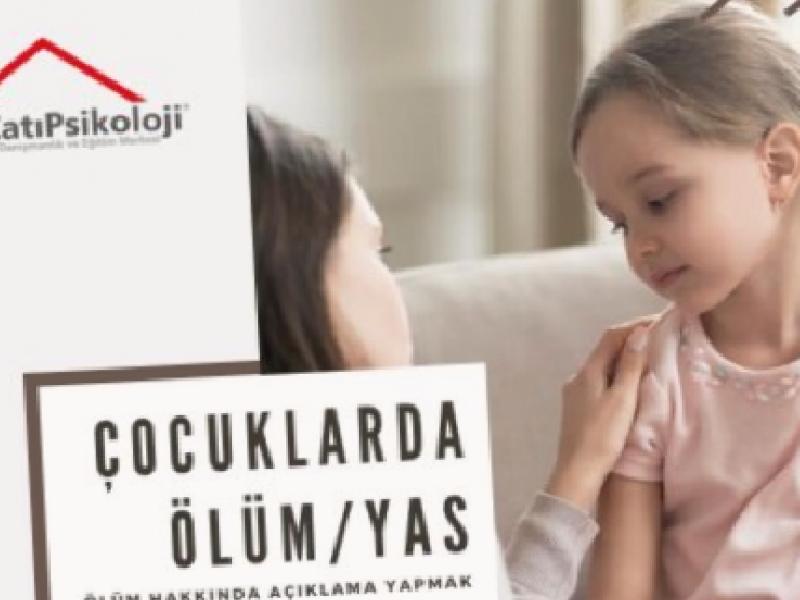DISCLOSURE ABOUT DEATH/MORRING DEATH IN CHILDREN
FREQUENTLY ASKED QUESTIONS
MAKING A STATEMENT
“Everything has a beginning and an end. every day someone
born, someone dies. When someone dies, his body doesn’t work, he breathes.
does not take, does not think, does not feel, does not eat, does not sleep.
People for various reasons; they got very sick
can die from unexpected situations.
Talking about death with children; makes the loss real,
it embodies and offers an opportunity to say goodbye.
First of all, what does the child know about death?
Incorrect information should be corrected by questioning.
All living things change to make sense of death.
it grows and dies, night is day, caterpillar is butterfly
that gb. It is important to highlight change.
The news of death should be given by the closest person, not an expert.
MEANING BY AGE
BABY (0-2 YEARS OLD)
The concept of death did not exist. Understanding the absence of a caregiver
can react.
EARLY CHILDHOOD (2-6 years)
He thinks death is temporary and reversible. universal death
He cannot understand what he is and has egocentric thinking.
CHILDHOOD (6-9 YEARS)
The irreversibility of death becomes clear. Curiosity about death
can. Can understand death concretely.
PRE-AUTHORITY (9-12 YEARS OLD)
Can perceive death abstractly. Death of own/parent
may worry.
Adolescence (12-18 years)
They can perceive the concept of death as adults. In the lives of loss
long-term effects can be seen.
WHAT NOT TO DO
The news of his death should not be hidden too long.
Instead of saying he’s dead; sleeping means death anxiety
It may cause sleep problems in the child.
To say that he went on a long vacation may suggest that he will return.
Because he is a good person, it is said that God took him with him, so as not to die.
It can push you to try to be bad.
Taking the child away from the house of mourning is part of the family
it may feel like it is not.
Do not cry, approaching as if you are sad, he will be sad too.
It can prevent the expression of emotions and the grieving process.
FUNERAL PROCESS
He will go to the mosque, the disappeared person will be there,
It can tell what they will remember and pray for.
Then ‘Would you like to join too?’ may be asked.
If he does not want to attend the funeral, his wish must be fulfilled.
When everyone goes to the funeral, the person who will take care of the child should be planned and
this person should not be an agitated person.
If he is going to attend the funeral, the responsibility of the child is regulated, in a calm person.
should be.
Flowers, pictures, etc., next to the cemetery. want to bring something
You may be asked whether you want to.
Culture-specific lament environments can frighten and worry the child.
Participation in the funeral before the age of 7 may adversely affect

